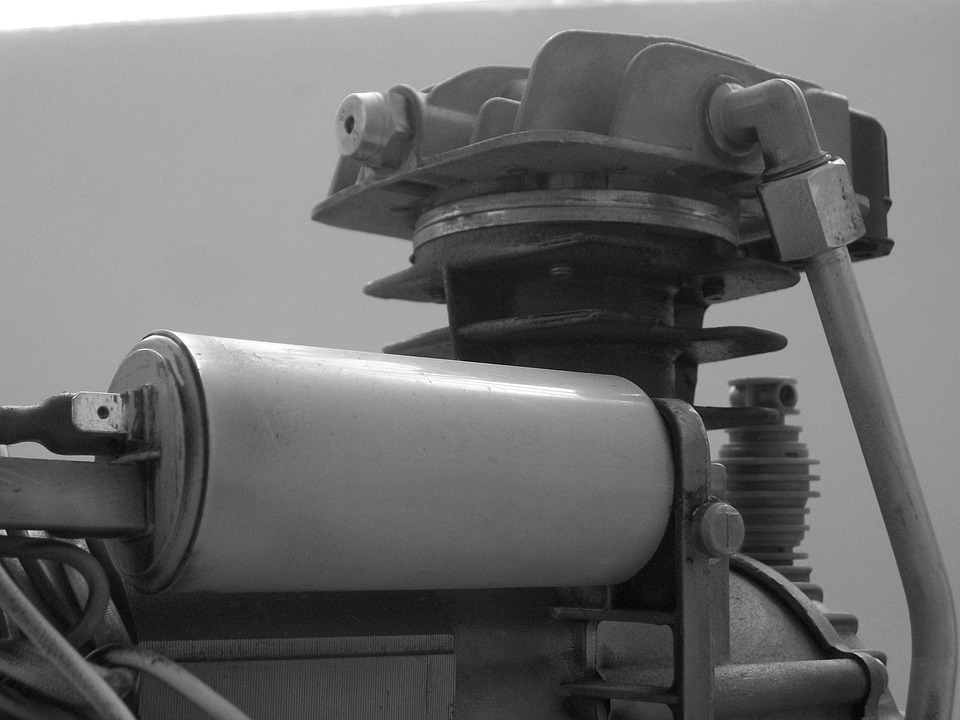What Is The Key Criteria For Choosing An Air compressor?

Air compressors have a wide range of applications. They’re used in agriculture, manufacturing, dry cleaning, pharmaceuticals, energy exploration, and food and beverages. When selecting one, it’s important to remember that they require an air dryer for a compressor. Without one, excessive moisture will accumulate in the air, causing corrosion, and you will risk damaging the equipment using the compressed air.
Important criteria must be considered when selecting your air compressor. You will need to know what specific applications you will use it for, such as air pressure and volume factors, storage capacity, power source, and noise levels. We will cover all the criteria in detail and exactly what you should be looking at to make the best decision for your investment.
Why Do You Need An Air Dryer For Compressor?
You may be wondering why you need an air dryer for a compressor. Air compressors produce water. Water can be drained from the system; however, residual water will remain. Water in the form of vapor and aerosol is the most difficult to remove and stays in the system.
As this moisture accumulates over time, serious damage can occur to your downstream equipment. PVC pipe for compressed air, Valves and machinery controls can become corroded. This can result in a total failure of processes as the controls stop working. In turn, this will cost more money and time.
Criteria For Choosing The Right Air Compressor
When choosing an air compressor, there are three major factors you need to consider first. These are airflow, air pressure, and air storage capacity. These three criteria affect performance, and it’s important to know how they function together. There are many different compressors available on the market, so it is important to consider these criteria before purchasing.
Compressor Size And Type
Before choosing the ideal air compressor, determine your needs. If you’re going to be using the unit at your house, your needs will be different from the needs of someone in an industrial setting.
For homeowners, a small compressor may be sufficient. Knowing how to operate the compressor will save thousands of dollars on repairs because you can operate it independently without a professional.
It’s different for professional contractors and commercial business owners. Professional-grade compressors are built specifically to stand up to the rigorous nature of any job site and are designed to be both durable and portable. Manufacturers rely on industrial-grade compressors. They need their systems to drive efficiency and keep production moving.
Additionally, air compressors come in two stages, single-stage and double-stage. A single-stage air compressor can reach up to 120 psi, while a double-stage compressor can reach 150 psi or higher. You can choose from three types of air compressors, depending on your need. These are reciprocating, scroll, and rotary.
A reciprocating air compressor has an internal crankshaft that drives its pistons inside the cylinders. This creates a vacuum that pulls air during retraction and forces air into a tank during extension. Because the internal components touch, these units typically run louder and hotter than other air compressor options.
Rotary air compressors feature rotary screw technology. This was introduced for powerful applications that require high power for long periods. These compressors maximize air intake and payout. Air is forced between helically-opposed rotating screws that reduce the volume of the air, delivering it compressed.
Scroll compressors feature the use of two spiral-shaped circular pieces. These pieces rotate around one another, compressing the air.
Air Pressure And Air Volume
Air pressure is a basic concept. It is measured in pounds per square inch (psi) of compressed air that a compressor can produce. You’ll find that most tools run at a maximum of 90 PSI. However, it’s best to have your compressor run at a higher level than your tools. This is because the air pressure will drop as you run the compressor.
The standard rule is to have your compressor run at 35% higher pressure than your tools. By doing this, you will be guaranteed to have constant pressure.
The volume of air produced per minute (CFM) is also another factor to consider. You need an adequate air volume for tools to operate at peak efficiency.
Additionally, operating high-demand tools with an air compressor with low CFM can cause your compressor to operate more frequently. This will ultimately result in more wear and tear on the unit and shorter pump life.
Most tools come with information that states what CFM they require. Make sure you compare this requirement to the compressor you are considering to ensure you make the right choice.
Air Storage Capacity
Naturally, the size of the tank determines the capacity for air storage. A larger tank means the compressor has a larger storage capacity. This also means that the compressor will have to run less frequently. It will be able to operate more tools as well. Air compressors with large tanks are ideal for industrial-size projects that need to support many tools without refilling constantly.
So for projects that require extensive use of tools, you would not want to select a compressor with a small tank size. This would require the compressor to work more, ultimately contributing to more wear and tear on the motor.
Power Supply
While not one of the most critical criteria, the power supply is still an important factor to consider. For indoor applications, it’s best to use electric-powered compressors. These eliminate air pollution, are cleaner, and feature more convenience. There are no fumes emitted from this type of air compressor.
When using an electric air compressor, you have to consider the circuit breaker that you are using. Most home shop-level compressors can use a standard 110 V outlet. However, if the circuit breaker is not rated high enough to carry the load, it won’t be safe or work. You will need a dedicated 20A circuit breaker for larger compressors.
In outdoor situations, gas compressors are more commonly used. They are cheaper to run and very efficient. However, due to the emission of fumes, they must be used in well-ventilated areas to eliminate your risk of getting sick.
Noise Levels
Compressors are noisy machines by nature. However, some models are noisier than others. One thing to consider is an oil-lubricated compressor versus oil-less compressor. Oil-less compressors tend to make more noise because their pistons are smaller and move faster than their oil-lubricated counterparts.
Another consideration is the RPMs of the motor. Purchasing a compressor with a low RPM rating will reduce noise and less wear on the pump. This is because the motor is moving less in these compressors. Additionally, belt-driven motors can be better than direct drive. They’re quieter and have the benefit of not having to replace the pump and the motor at the same time if one of them fails.
Additionally, many air compressors feature sound enclosures to make the workplace more comfortable. So as an option for noise reduction, you can consider one of these models.
Final Thoughts
With so many air compressors available, choosing the right one for your needs can be a very daunting experience. Making sure you explore every aspect of your job’s requirements will ensure that you make the best choice.
First, you will need to evaluate exactly what you need the air compressor for. This will eliminate a good portion of models available. Second, consider what tools you will be using with the compressor, as this will tell you what air volume and air pressure you will need in the unit you purchase.
Third, determine the level of work you will be completing. If you have extensive work to be done, you will need a larger storage capacity. Fourth, consider your power source. You won’t want to have a gas-powered compressor if you are indoors. Finally, consider the noise level you are willing to work with. Different models have different noise outputs.
By considering all of these factors, you will be able to choose the best air compressor for your requirements. Additionally, don’t forget to ensure it comes with an air dryer for a compressor. With your investment, you will want to ensure you don’t get any rust damage from the water left behind.
